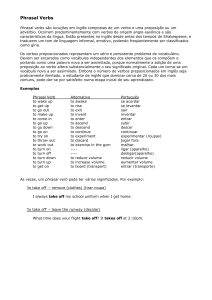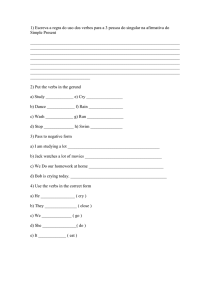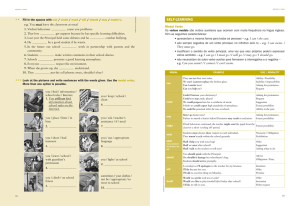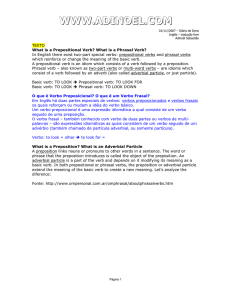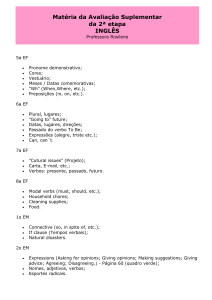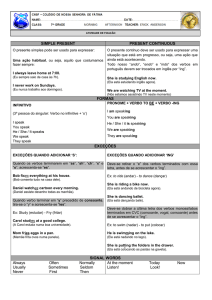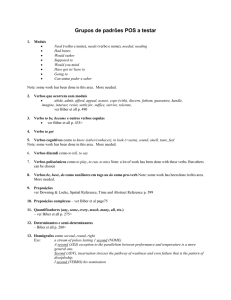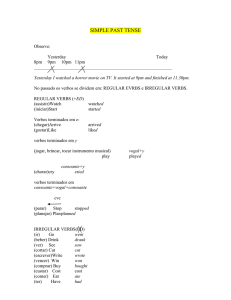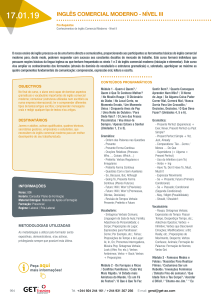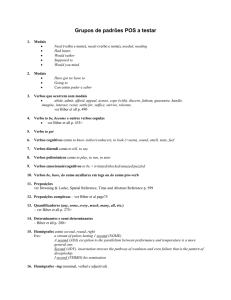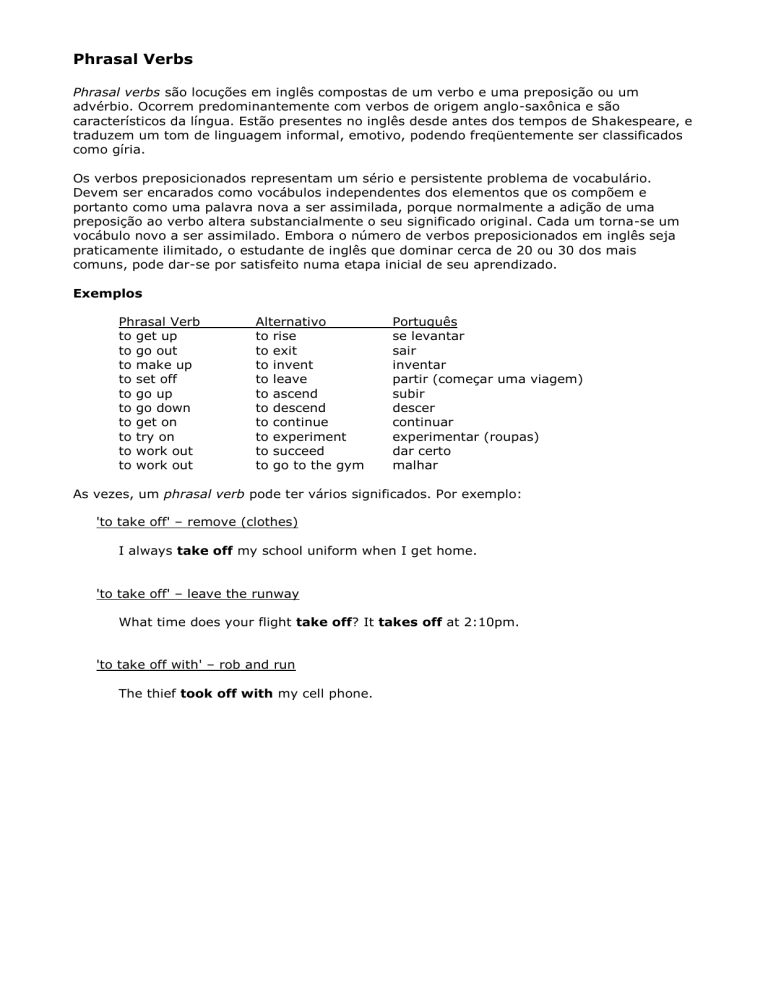
Phrasal Verbs
Phrasal verbs são locuções em inglês compostas de um verbo e uma preposição ou um
advérbio. Ocorrem predominantemente com verbos de origem anglo-saxônica e são
característicos da língua. Estão presentes no inglês desde antes dos tempos de Shakespeare, e
traduzem um tom de linguagem informal, emotivo, podendo freqüentemente ser classificados
como gíria.
Os verbos preposicionados representam um sério e persistente problema de vocabulário.
Devem ser encarados como vocábulos independentes dos elementos que os compõem e
portanto como uma palavra nova a ser assimilada, porque normalmente a adição de uma
preposição ao verbo altera substancialmente o seu significado original. Cada um torna-se um
vocábulo novo a ser assimilado. Embora o número de verbos preposicionados em inglês seja
praticamente ilimitado, o estudante de inglês que dominar cerca de 20 ou 30 dos mais
comuns, pode dar-se por satisfeito numa etapa inicial de seu aprendizado.
Exemplos
Phrasal Verb
to get up
to go out
to make up
to set off
to go up
to go down
to get on
to try on
to work out
to work out
Alternativo
to rise
to exit
to invent
to leave
to ascend
to descend
to continue
to experiment
to succeed
to go to the gym
Português
se levantar
sair
inventar
partir (começar uma viagem)
subir
descer
continuar
experimentar (roupas)
dar certo
malhar
As vezes, um phrasal verb pode ter vários significados. Por exemplo:
'to take off' – remove (clothes)
I always take off my school uniform when I get home.
'to take off' – leave the runway
What time does your flight take off? It takes off at 2:10pm.
'to take off with' – rob and run
The thief took off with my cell phone.
Exercise 1
Select the correct phrasal verb to complete the blank.
1. If you want to join that club, you have to ......... a form.
(a) fill to
(c) fill in
(b) fill out
(d) fill over
2. My son always ......... very late.
(a) gets up
(c) gets down
(b) gets in
(d) gets out
3. There are signs everywhere in the park saying that I have to ......... the grass.
(a) keep off
(c) keep down
(b) keep out
(d) keep on
4. I saw the thief ......... my mobile phone.
(a) take up with
(c) take off with
(b) take out with
(d) take on with
5. I’m a very lazy person, I really should .......... more, do some exercise and breathe some
fresh air.
(a) get out
(c) get up
(b) get around
(d) get off
6. You don’t need to worry that you'll be left alone. I'll always ......... you.
(a) stand for
(c) stand by
(b) stand to
(d) stand with
7. You can tell by the way she talks and behaves that she ......... her mother.
(a) takes to
(c) takes back
(b) takes in
(d) takes after
8. I hate it when children ......... stories.
(a) make up
(c) make back
(b) make in
(d) make after
9. OK. Thanks for waiting while I went to the bathroom. Would you like me to ......... now?
(a) go to
(c) go in
(b) go on
(d) go at
Exercise 2
Read this story about a teacher talking to his students. Put the correct phrasal verbs into the
spaces. Choose from:
turn on
put out
turn off
put away
turn up
hang up
turn down
clean up
take off
pick up
take out
Teacher: OK class. Time to start. Mary could you ______________ the lights? Thanks. OK
everyone, ______________ your books, and make sure you ______________ your cell
phones.
Actually, before we start I want to tell you a little story. Every night I go home,
______________ my suit and throw it on the bed. My wife always says "You'd better
______________ your suit or it will get wrinkled. Of course I do what she says, but last night
she was really angry. She said "You're so messy. I always have to ______________ after you.
I got a bit stressed so I lit a cigarette. My wife said, "_______ that _______! Are you crazy?
You can't smoke in the house!"
Anyway, let's get back to class. Listen to this tape and answer the questions.
Student: It's too loud. Can you _______ it _______ please?
Teacher: Certainly.
Student: That’s better. Thank you.
Teacher: OK. Whoops, I dropped my pen. Could you _______ it _______ for me please?
Exercise 3
Rewrite the following sentences using appropriate phrasal verbs (replacing the highlighted
verbs). Part of the phrasal verb substitution is given in brackets.
1. I rise at 6am every day except Sundays. (get)
2. I can’t tolerate this noise any longer! (put)
3. Please remove your shoes before entering. (take / come)
4. I wish that my neighbour would reduce the volume of his TV. (turn)
5. You should board the plane immediately. (get)
6. All cigarettes must be extinguished before entering. (put / go)
7. I was raised in Connecticut but I now live in New York. (bring)
8. Ten prisoners escaped from Thames Marsh prison yesterday. (run)
9. I started my journey on the 10th of June. (set)
10. The thief stole my purse, mobile phone and my house keys. (take)

